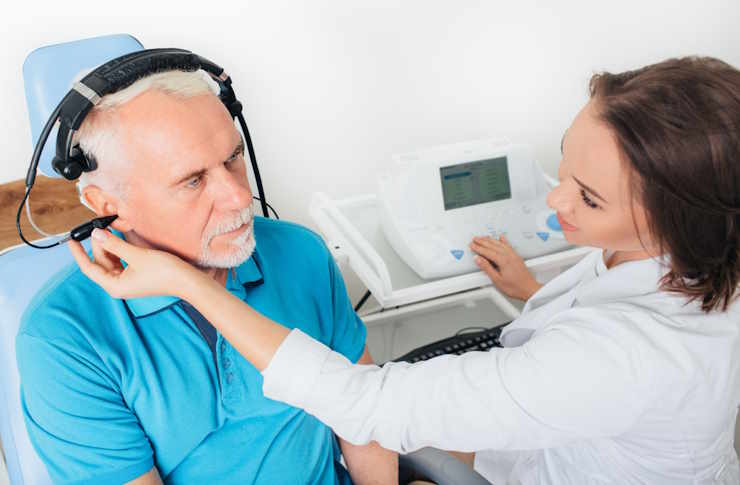Medicare Covered Cleaning Services: What You Need to Know
Navigating Medicare benefits can be challenging, especially when it comes to understanding which home services might be covered. While traditional house cleaning typically falls outside Medicare's scope, certain cleaning services deemed medically necessary may qualify for coverage. For seniors and individuals with disabilities, maintaining a clean living environment isn't just about comfort—it can be essential for health and recovery. This article explains when cleaning services might be covered by Medicare, what qualifies as medically necessary, and how to access these benefits.

Understanding the Difference Between Standard and Medically Necessary Cleaning
Standard home cleaning services—like dusting, vacuuming, and general tidying—are considered custodial care and aren’t typically covered by Medicare. These services, while important for comfort and general wellbeing, don’t meet Medicare’s definition of medical necessity. However, certain cleaning services may qualify when they directly relate to treating or managing a medical condition.
Medically necessary cleaning services are distinctly different. These services are prescribed by healthcare providers as part of a treatment plan for specific health conditions. For example, specialized cleaning might be required for patients with severe respiratory conditions, compromised immune systems, or those recovering from certain surgeries. The cleaning must directly contribute to treatment or prevention of a medical condition, not just general home maintenance.
Types of Cleaning Services That May Be Covered Under Medicare
Medicare coverage for cleaning services is typically limited to specific scenarios that meet strict medical necessity guidelines. Under Medicare Part A (hospital insurance), some cleaning services may be covered during short-term home health care following hospitalization. Part B (medical insurance) might cover certain medically necessary cleaning when prescribed as part of treatment for specific conditions.
The types of cleaning services potentially covered include:
-
Specialized cleaning for individuals with severe allergies or respiratory conditions where environmental triggers must be minimized
-
Sanitization services for patients with compromised immune systems
-
Biohazard cleaning following medical procedures performed at home
-
Deep cleaning before home installation of certain medical equipment
Medicare Advantage plans (Part C) may offer additional coverage beyond Original Medicare, sometimes including services that help maintain independence at home. These plans vary widely, so checking your specific plan’s benefits is essential.
The Role of Certified Providers in Medicare-Covered Cleaning Services
Not just any cleaning company can provide Medicare-covered cleaning services. To qualify for Medicare reimbursement, cleaning services must be delivered by Medicare-certified providers who meet specific standards. These providers understand Medicare’s documentation requirements and how to properly code their services for reimbursement.
Certified providers must:
-
Meet Medicare’s quality and safety standards
-
Employ properly trained staff familiar with medical needs
-
Maintain detailed documentation connecting cleaning services to medical necessity
-
Work under the direction of a healthcare provider’s order
Home health agencies certified by Medicare often coordinate these specialized cleaning services as part of a broader care plan. The certification process ensures providers meet federal standards for quality of care, helping to safeguard patients’ health and Medicare’s resources.
How Covered Cleaning Services Support Patient Health and Safety
Medicare-covered cleaning services play a crucial role in supporting overall patient health beyond just maintaining a tidy home. For many beneficiaries with serious health conditions, these specialized cleaning services can significantly impact treatment outcomes and quality of life.
For immunocompromised patients, thorough sanitization can prevent potentially life-threatening infections. Individuals with severe respiratory conditions like COPD or asthma benefit from reduced allergens and irritants that could trigger dangerous exacerbations. Post-surgical patients may require specialized cleaning to maintain a healing-friendly environment and prevent complications.
These services also support aging in place—allowing seniors to remain safely in their homes rather than requiring institutional care. By reducing fall hazards and addressing health-threatening conditions like mold or pest infestations that could exacerbate medical conditions, covered cleaning services can prevent hospitalizations and improve long-term health outcomes.
How to Access Medicare-Covered Cleaning Services
Accessing Medicare-covered cleaning services requires following specific procedures to ensure coverage approval. The process typically begins with your physician, who must determine and document that specialized cleaning is medically necessary for your condition.
Steps to access these services typically include:
-
Obtain a detailed written order from your physician documenting why specialized cleaning is medically necessary
-
Work with a Medicare-certified home health agency or provider
-
Ensure the cleaning services are included in your documented care plan
-
Verify coverage with Medicare before services begin
-
Maintain proper documentation of all services received
Medicare Advantage plans may have different requirements or offer additional coverage options. Contact your plan directly to understand your specific benefits. Some beneficiaries may also qualify for additional assistance through Medicaid programs or state-based assistance if they meet income requirements.
Typical Costs and Coverage Limitations for Medicare Cleaning Services
Understanding the financial aspects of Medicare-covered cleaning services helps beneficiaries plan appropriately for potential out-of-pocket expenses. Coverage levels and costs vary significantly based on the type of Medicare plan and the specific services required.
| Service Type | Medicare Coverage | Typical Patient Responsibility | Coverage Limitations |
|---|---|---|---|
| Standard Home Cleaning | Generally Not Covered | Full Cost ($100-300/visit) | Not considered medically necessary |
| Specialized Medical Cleaning | Partially Covered (if medically necessary) | 20% coinsurance under Part B | Requires doctor’s order; limited duration |
| Post-Surgical Home Sanitation | May Be Covered | Medicare Part B deductible plus 20% coinsurance | Time-limited; must be part of recovery plan |
| Cleaning for Respiratory Conditions | Coverage Varies | Varies by plan and medical necessity | Usually limited to severe diagnosed conditions |
| Medicare Advantage Enhanced Benefits | Varies by Plan | Varies ($0-150 depending on plan) | Often limited to specific providers |
Prices, rates, or cost estimates mentioned in this article are based on the latest available information but may change over time. Independent research is advised before making financial decisions.
Even when medically necessary, Medicare typically doesn’t cover long-term or indefinite cleaning services. Coverage is usually limited to specific recovery periods or acute phases of illness. Additionally, Medicare never covers standard housekeeping services like general dusting, laundry, or routine bathroom cleaning unless specifically tied to a documented medical need.
Conclusion
While Medicare doesn’t cover standard house cleaning, certain medically necessary cleaning services may qualify for coverage when they directly support treatment for specific health conditions. Accessing these benefits requires proper documentation from healthcare providers, use of certified service providers, and adherence to Medicare’s guidelines. Understanding the distinction between standard cleaning and medically necessary services is crucial for beneficiaries seeking coverage. By working closely with healthcare providers and Medicare representatives, beneficiaries with qualifying conditions can access specialized cleaning services that support their health, safety, and ability to remain independent at home.




